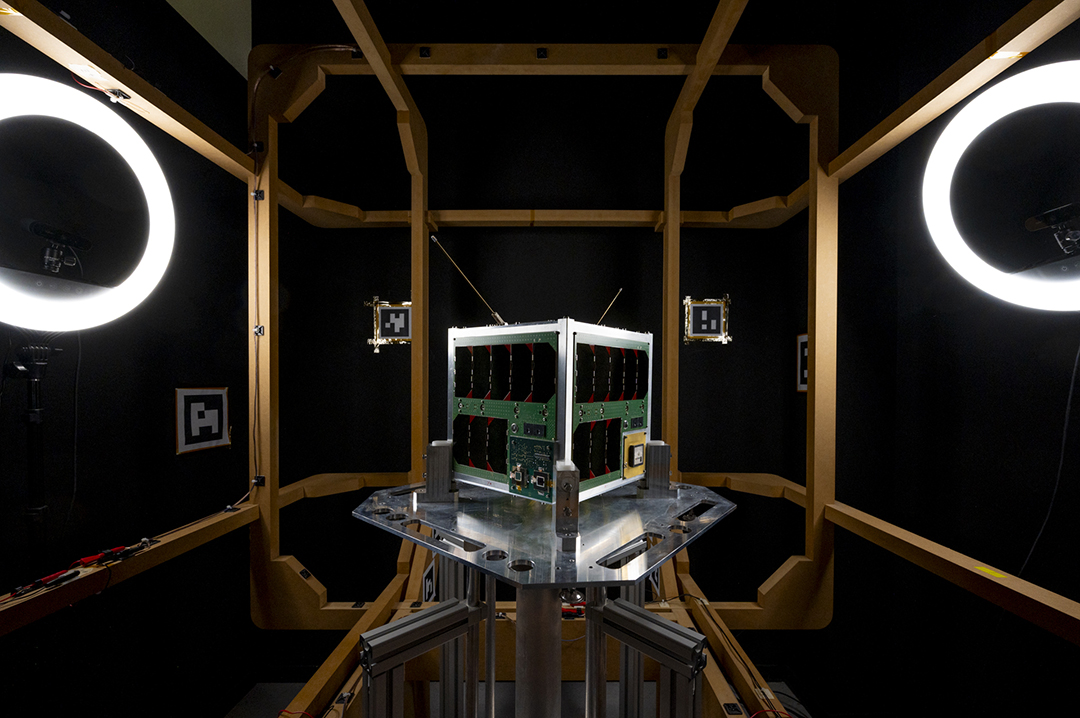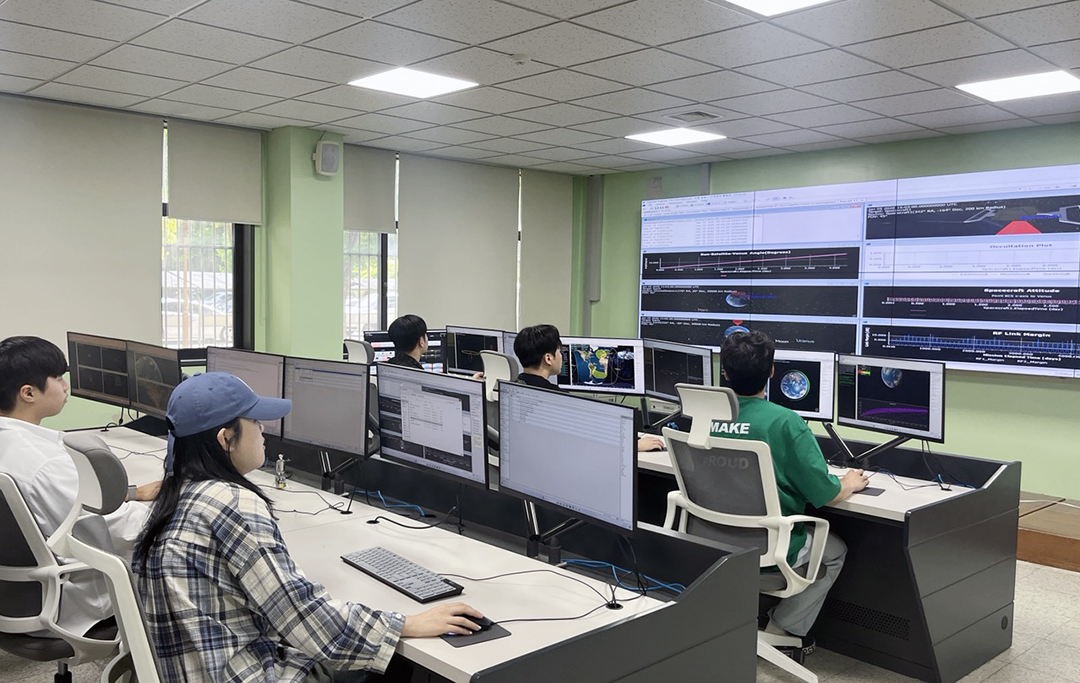Professor Zizung Yoon’s Nanosatellite “OOV-CUBE,” Set for Launch On Jul. 9
- 2024-07-04

OOV-CUBE, the nanosatellite
developed by Zizung
Yoon, a professor at Korea Aerospace University’s Department of Smart Drone
Engineering, will be launched on July 9. OOV-CUBE is currently loaded on Ariane
6, the new projectile stationed at the Guiana Space Centre, which is the
launching grounds of the European Space Agency (ESA).
The critical mission of the
nanosatellite is to verify advanced technologies, such as AI and IoT, in a
space environment to enhance their technology readiness level (TRL); “OOV” from
this satellite’s name is also the abbreviation of “On-Orbit Verification.”
The advanced technologies
OOV-CUBE will verify on this mission include highly efficient IoT protocol
receivers, next-generation Perovskite solar cell experiments, a highly
efficient AI processor and onboard cloud detection neural networks, L-band
transceivers for stationary inter-satellite communication on low orbit, and two
optical cameras. In particular, the plan is to secure a competitive edge in
advanced technology by demonstrating the IoT technology that allows miniature
IoT devices to communicate directly with the satellite and verifying the AI technology on the
nanosatellite.

As a head researcher at the Technical University of
Berlin (TU Berlin), Professor Zizung Yoon developed and designed “TUBiX10,” the satellite
platform utilized by OOV-CUBE. From 2018 to 2020, five satellites were
developed using the TUBiX10 platform to successfully operate in a low-orbit
environment.
TU Berlin and Rapid Cubes,
a nanosatellite company, were responsible for the production and testing of
this mission. OOV-CUBE took the honor of winning the contest hosted by ESA
before the first flight of its new projectile, Ariane 6, and thus earned the
opportunity to verify its advanced technology in space without any launching
costs. The first launch of Ariane 6 will include 15 projectiles developed in
European countries and the OOV-CUBE satellite.
After the satellite’s
successful launch on the 9th, it will be under operation by two satellite
control centers, the Korea Aerospace University’s Distributed Space Systems Research Lab and TU Berlin. The Korea Aerospace University also newly established a
satellite control center within the campus as a part of its Innovative &
Convergent University Project for Next-Generation Communication.
Professor Yoon commented, “This mission will be a chance for us to accumulate technology and experience in the high-tech field, including IoT communication and AI utilization in space by harnessing nanosatellites.” He added, “I look forward to our university students building relevant on-site expertise as they participate in the satellite’s operation.”

